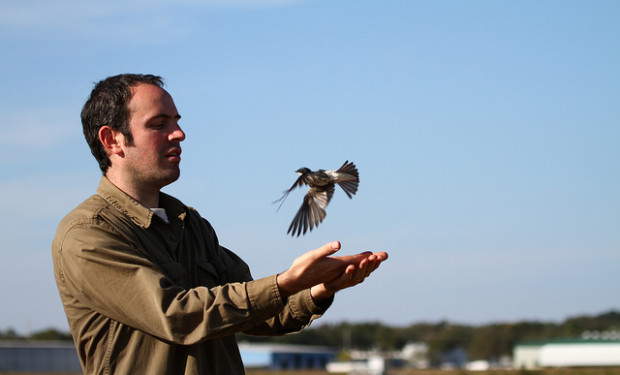Let the Bird Fly—Giving a Cop “The Finger” is NOT Grounds for Arrest
Federal courts have held that giving “the bird” to a police officer is a form of protected speech under the First Amendment.
This article is the third in a three-part series on citizens’ rights when interacting with police. You can read Part One and Part Two here.
The First Amendment to the United States Constitution guarantees freedom of speech, a protection that extends to both words and expressive conduct. Giving a person the middle finger or using an equivalent swear word is unarguably foul language. However, as noted by the U.S. Supreme Court in Cohen v. California, it is a constitutionally protected form of expression. Do the same rules apply if that expression is directed toward a police officer?
On January 3, 2013, the U.S. Court of Appeals for the Second Circuit ruled that giving the finger, or “flipping the bird,” at a cop is, on its own, insufficient grounds for an arrest. The case arose from the 2006 arrest of New York resident John Swartz by Officer Richard Insogna of the St. Johnsville Police Department. Swartz was a passenger in his wife’s car when they passed by an officer and observed him using his radar device. To express his anger, Swartz gave Officer Insogna the finger. As the couple arrived at their destination, they realized that a police car was following them with its lights flashing. Swartz’s wife, Judy, was neither speeding nor committing any other type of traffic violation.
Swartz was arrested for disorderly conduct. The charges were eventually dropped, but Swartz decided to sue the officer for violating his civil rights. The U.S. District Court for the Northern District of New York dismissed the lawsuit, but Swartz appealed. The Second Circuit vacated and remanded (PDF) the lower court’s judgment, holding that the stop was unlawful and Swartz was within his First Amendment right to use this expressive gesture toward a police officer.
According to Officer Insogna, he followed the car because the rude gesture made him concerned for the female driver’s safety. The court found this argument unreasonable, noting, “This ancient gesture of insult is not the basis for a reasonable suspicion of a traffic violation or impending criminal activity.” Therefore, there was no probable cause to believe a disorderly conduct violation had occurred in this case.
In reality, insulting a police officer is not an uncommon basis for arrest. In October 2011, Aneury Peralta of East Harlem, N.Y., was involved in an incident of road rage that quickly escalated after Peralta flipped off another driver. The driver turned out to be a plainclothes detective, and he ticketed Peralta for disorderly conduct. Peralta said that police officers continued to harass him for weeks after the incident, eventually leading him to bring a $2.1 million civil lawsuit against the New York City Police Department.
Similarly, in 2009, Pittsburgh, Pa. driver David Hackbart was involved in an altercation with another driver over a parking space, and gave the driver the finger. After hearing someone yell, “Don’t flip him off,” a frustrated and angry Hackbart gave the second driver the finger, too. Unfortunately for Hackbart, the second driver was a police officer. Hackbart received a citation for violating the state’s disorderly conduct law, which bans obscene language and gestures.
Although a state judge first found him guilty, the charges against Hackbart were eventually dropped. He appealed nonetheless, and with the help of the American Civil Liberties Union, sued the police officer and the City of Pittsburgh for violating his civil rights. U.S. District Judge David S. Cercone ruled that Hackbart’s non-verbal gesture was protected by the First Amendment.
As these cases illustrate, vulgar speech is not illegal. However, when an angry person offends a police officer, it is common to see punishment for the lack of respect. Although tempted to do so at times, the prudent driver would be wise to think twice before giving a fellow driver the finger.






